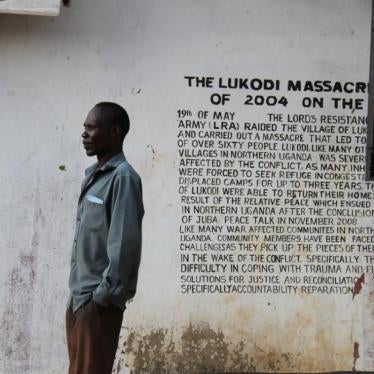(The Hague) - When the history of international justice is written, the trial of Slobodan Milosevic will appear as an important landmark for his victims. But it will also be seen as a prelude to the permanent International Criminal Court, the most important new human rights institution in more than half a century. His trial begins Tuesday, February 12, in the Hague.
The International Criminal Court is only a few months away. Sixty states must ratify the treaty for the court to be established; as the Milosevic trial begins in The Hague, fifty-two states have ratified. The court's jurisdiction will commence sixty to ninety days after the sixtieth ratification.
So the International Criminal Court should get underway this summer. The first assembly of states who are members of the court is scheduled to take place in New York, at United Nations headquarters, in the first week of September.
The International Criminal Court will have jurisdiction over future cases of genocide, crimes against humanity, and war crimes. It will not be able to pursue any crimes that have been committed in the past. Nor will the court be able to pursue cases that are already being dealt with, in credible fashion, by national courts.
For the court to be able to take on a case, either the crime must have been committed in a country that has ratified the treaty, or the crime must have been committed by a national of a country that has ratified the treaty. The United Nations Security Council can also refer a matter to the court.
The International Criminal Tribunal for the former Yugoslavia, where Milosevic is being prosecuted, represents real progress for the victims of grave human rights abuse. But it is still an ad hoc tribunal. The process of setting up individual courts is too slow and cumbersome for justice to be done in all the places that the world needs it.
Human Rights Watch, along with many other organizations, has been working for more than seven years to further the establishment of an international criminal court and welcomes the court's enormous potential for safeguarding human rights.
|
News Release
Milosevic and the ICC
Your tax deductible gift can help stop human rights violations and save lives around the world.
Region / Country
Most Viewed
-
November 25, 2019
A Dirty Investment

-
June 3, 2025
“They’re Ruining People’s Lives”

-
December 21, 2023
Meta’s Broken Promises

-
November 20, 2024
The Man Who Bought The World

-
December 11, 2018
No Support


